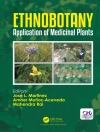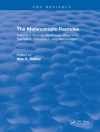Samuel Hahnemann’s ‘Organon of Medicine’ is a seminal text that establishes the philosophical and practical foundations of homeopathy. Written in a clear yet profound style, Hahnemann meticulously elucidates the principles underlying this alternative medical system, emphasizing the importance of treating the individual rather than merely alleviating symptoms. The work delves into concepts such as the Law of Similars, dynamization of remedies, and the holistic approach to healing, situating itself within the broader context of 19th-century medical reformist thought that sought alternatives to the prevailing allopathic practices of the time. Hahnemann, a German physician and a pioneering figure in the history of medicine, drew from his dissatisfaction with the conventional medical practices of his day, which often relied on harsh treatments and remedies. His extensive background in clinical practice, along with his linguistic skills, enabled him to articulate a nuanced understanding of diseases and their treatment. It was his personal journey of healing, along with his empirical studies, that led to the formulation of homeopathy, forever altering the landscape of medical theory and practice. ‘Organon of Medicine’ is an essential read for those interested in medical history, alternative medicine, and the philosophy of healing. Its principles continue to resonate in contemporary discourse on holistic health, making it a vital addition to the library of scholars, practitioners, and anyone seeking an alternative perspective on medicine.
Circa l’autore
Samuel Hahnemann (1755–1843) was a German physician and the founder of homeopathy, a system of alternative medicine based on the principle of ‘like cures like’. Hahnemann, dissatisfied with the medical practices of his time, which he considered to be ineffective and often harmful, began to formulate the principles that would lead to the development of homeopathy. He expressed these ideas in his seminal work, the ‘Organon of Medicine’, first published in 1810. A scholar in his own right, Hahnemann not only researched and practiced medicine but also translated scientific and medical texts. His ‘Organon of Medicine’ is a comprehensive work that lays out the theoretical framework of homeopathy, explaining its concepts and methodologies in a systematic fashion. Hahnemann’s contribution to the field of medicine, particularly alternative therapies, has been both influential and controversial. He created a therapeutic approach that continues to be practiced and researched globally. His medical philosophy emphasized the importance of observing the individual symptoms of a patient and administering minute doses of substances that, in larger amounts, would produce similar symptoms in a healthy person. Hahnemann’s legacy endures through the ongoing practice of homeopathy and the institutions and practitioners that subscribe to his methodologies.












